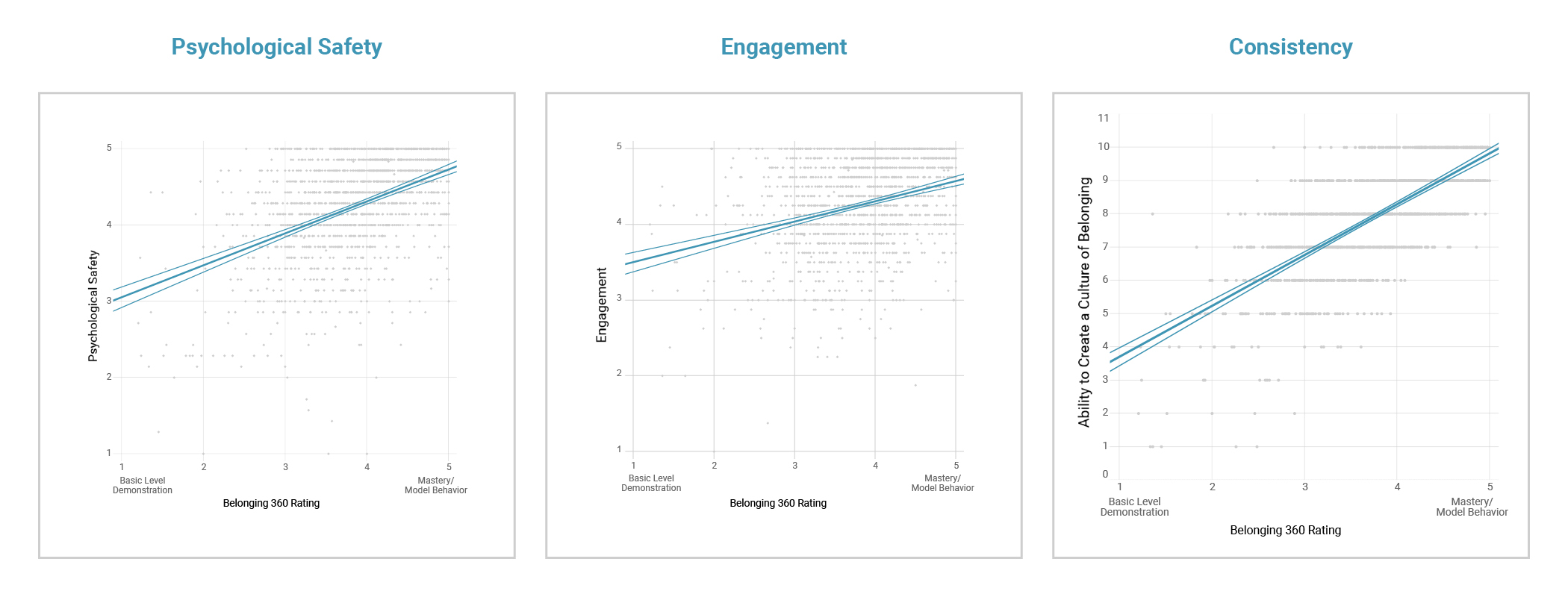Belonging: Pragmatic, Impactful, Sustainable – How it’s becoming the future of DEI

The latter part of 2023 and early 2024 have been marked by global unrest and political unpredictability. CEOs, CHROs, and CDOs have found themselves constantly navigating these turbulent times, grappling with evolving demands from their employees. Since last October, I’ve engaged in discussions with senior executives and board members, as well as presented at several prestigious conferences dedicated to understanding how to maneuver in this current climate and address the pivotal question: What lies ahead for DEI?
From my interactions, it’s clear that CHROs and CDOs are currently discussing:
- Implementing strategic, sustainable, and impactful programs that imbue purpose and visibility.
- Integrating representation into talent management processes to ensure reliance on objective data.
- Establishing strategic partnerships across businesses to unite allies and advocates.
- Measuring cultural development and leadership behavior against tangible outcomes.
- Maintaining a strategic business focus, recognizing the necessity of aligning with business goals and objectives.
- Emphasizing belonging as a critical aspect.
How can organizations minimize or eradicate resistance to DEI?
Belonging risks remaining a mere concept if not thoroughly understood. Leaders, to their detriment, might overlook the crucial role of belonging in the solutions they employ to navigate today’s uncertainties. Organizations struggling to measure, concretize, and actualize belonging risk diminishing its significance. Measuring employees’ real experiences is vital for strategic, sustainable, and impactful programs. Understanding the contributions of individuals, leaders, and organizations to fostering belonging is paramount. For leaders and organizations to effectively integrate belonging into their cultures, it must be pragmatic, straightforward, and directly linked to tangible outcomes.
How has RHR research demonstrated that achieving this is feasible?
RHR’s framework elucidates how belonging is influenced by our systems, processes, and, most crucially, leadership behavior. Some organizations may question whether belonging truly drives desired outcomes for marginalized communities. Our research unequivocally shows that inequity can be mitigated, and a set of key leadership behaviors fosters tangible outcomes such as organizational commitment, engagement, and psychological safety.

What is RHR’s belonging framework?
RHR’s culture of belonging framework includes:
- Advocacy: Demonstrating visible sponsorship and accountability in fostering a culture of belonging. Ensuring equity in talent and performance processes, resources, and opportunities, while minimizing bias and harm.
- Trust: Leveraging alignment with purpose and culture, respecting boundaries, and fostering clarity in relationship-building and maintenance. Consistently modeling organizational values, cultural fluency, repair, and humility.
- Safety: Cultivating an environment where authenticity thrives, allowing for speaking up, learning from mistakes, challenging ideas, and encouraging experimentation.
- Access: Providing tools, information, and resources for full participation, coupled with clarity on how to succeed, influence, and participate in decision-making processes.
- Opportunities: Offering meaningful avenues to contribute and add value to the business, facilitated by clear expectations, alignment of capabilities with responsibilities, and opportunities for development and learning.
How can RHR help your organization’s DEI program?
Our belonging assessment offers leaders an exhaustive analysis of cultural talent management practices, beliefs, experiences, and perceptions. Using the assessments, organizations can pinpoint existing gaps and develop highly targeted interventions to bolster the health of their culture. If you’re struggling to create a sustainable and meaningful impact on your organization culture, we’re here to help. To begin a conversation, reach out to Cristina Jimenez.











